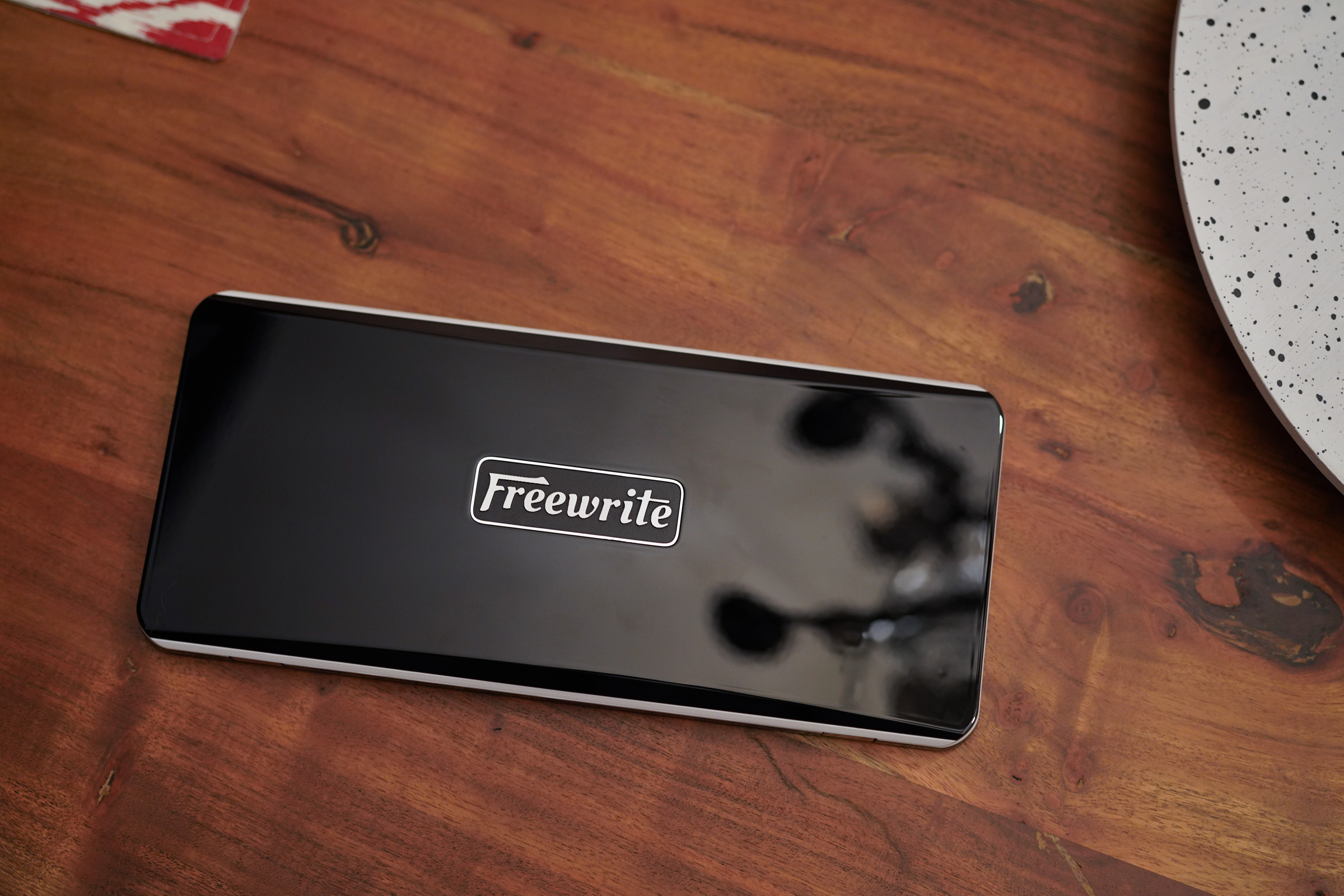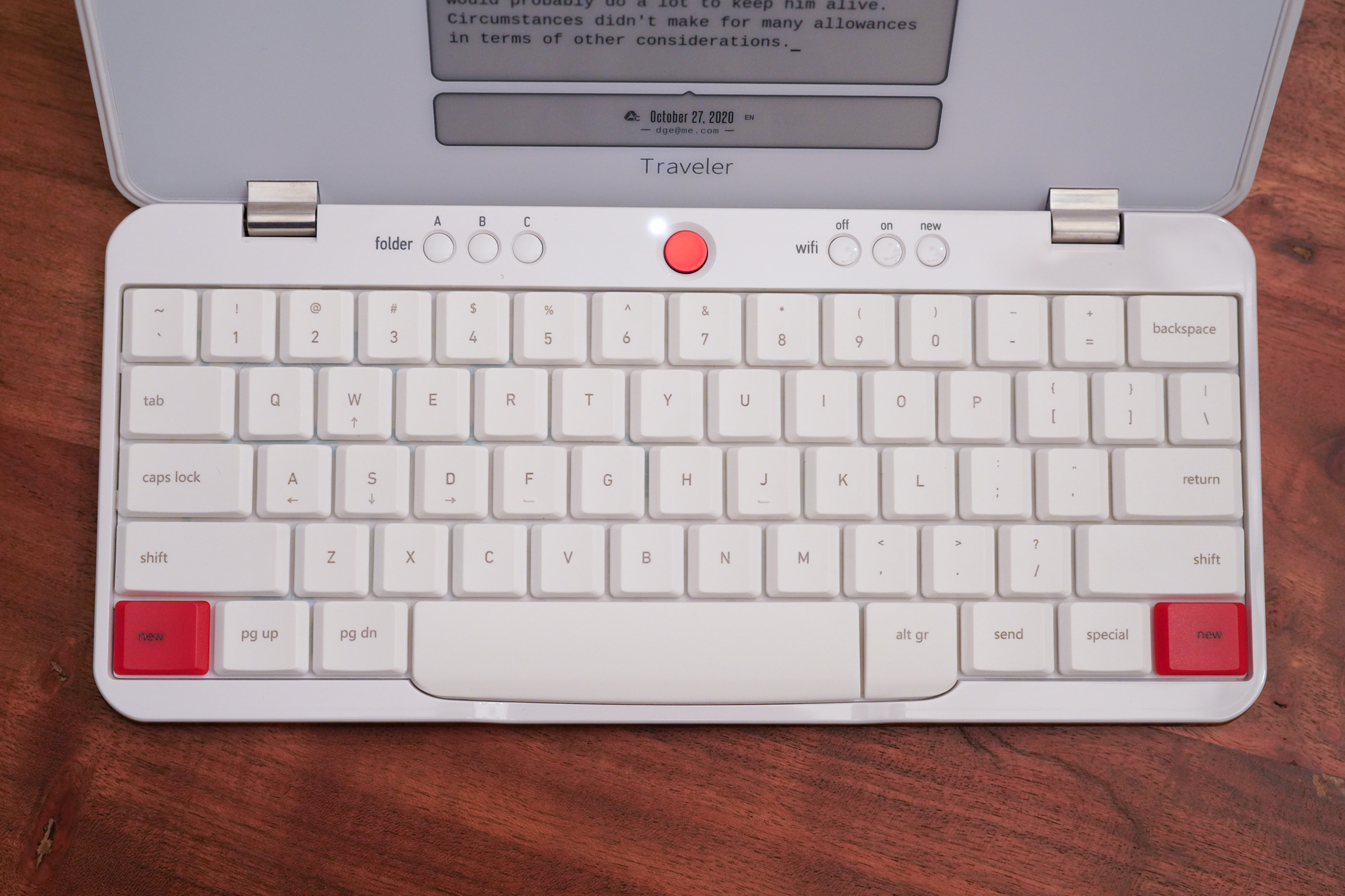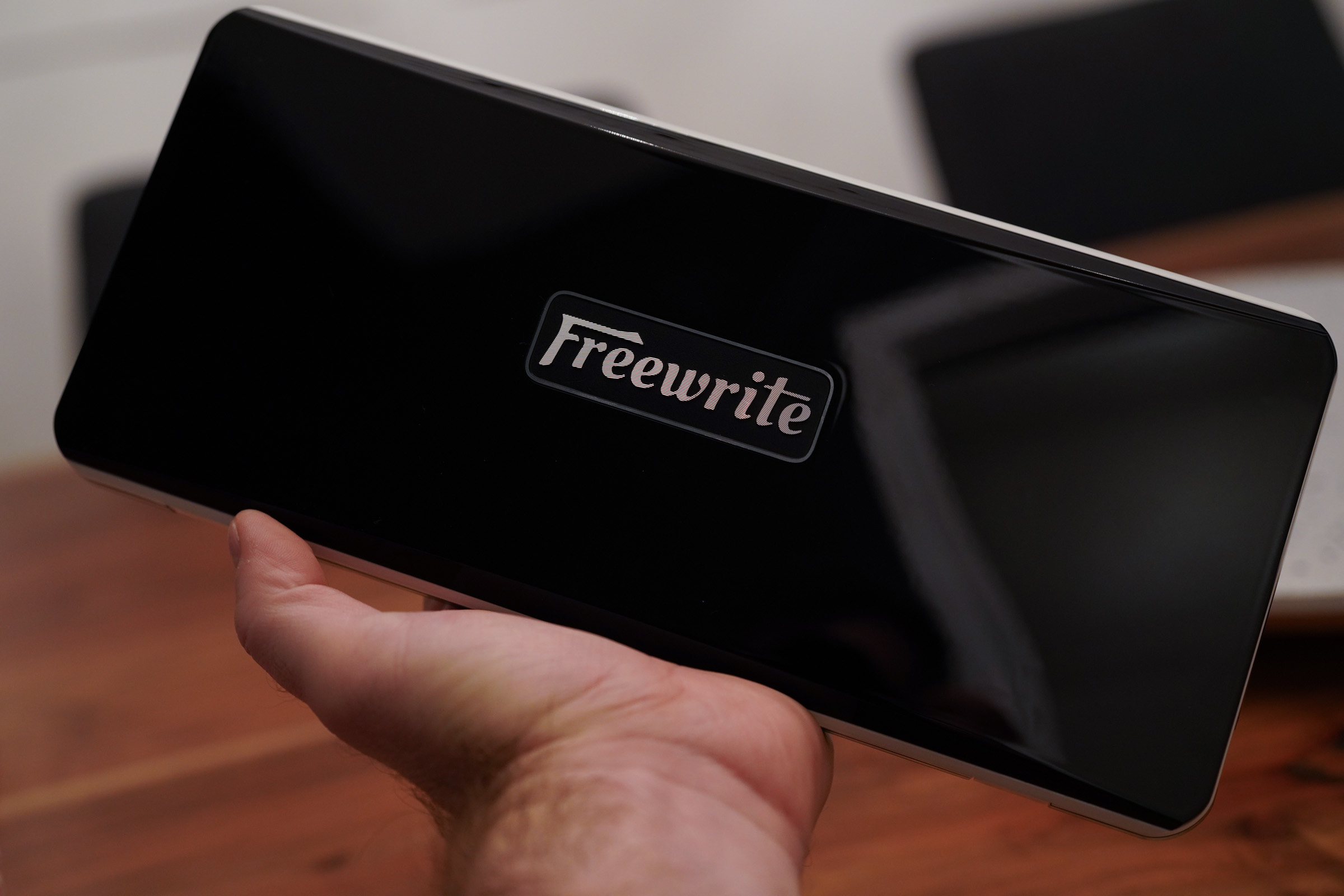As a hardware startup, Astrohaus stands apart because of its unique offerings focused specifically on writers and writing. Its debut product, the Freewrite, looked like an old-school travel typewriter with an e-ink screen. Now, it’s back with a new device it’s been working on for the past couple of years: The Freewrite Traveler. This more portable e-ink typewriter has a clamshell design and isn’t much larger than a Nintendo Switch, making it a flexible, go-anwyhere writing companion.
The basics
Astrohaus began teasing the Traveler a few years ago, before eventually launching an Indiegogo crowdfunding campaign in November 2018 to get it made. The crowdfunding was very successful, raising over $600,000 on the platform before the campaign ended, and then another $200,000+ in pre-orders after that. Like many hardware efforts, it encountered a few delays relative to its original delivery timeline, but now the Freewrite Traveler is shipping out to pre-order customers.

Image Credits: Darrell Etherington
In terms of specs, it has up to four weeks of battery life with regular usage, and weighs under two pounds, with a folding design that’s roughly half the surface area of most laptops. The screen on the top half is an e-ink display, and there’s a sub-screen for providing info like network status. The bottom half houses the keyboard, which boasts over 2mm of travel for a great keypress feel.
The case is plastic, as are most of the components, and the exterior is a glossy black. The Traveler connects via wifi, like the original Freewrite, and allows you to register an account to sync to up to three separate folders of documents. When out of wifi range, your work is stored locally, and it can sync to the cloud service of your choice via Freewrite’s integrations whenever you’re connected.
Design and features
The Traveler’s design is all about portability and convenience, while retaining the core usability features that make the original Freewrite such an ideal device for focused writing. The clamshell design is intentionally large enough to fit that full-sized keyboard comfortably, but keeps the screen small like with the original, which makes it more portable and ensures that distractions are kept to a minimum – aided by the fact that all you can do on it is type text, since there are no apps, browser or other functions.
Astrohaus has stayed very close to their original vision for the Traveler, with some minor tweaks including the hinge design. The end result is a light and durable-feeling portable digital typewriter, with a keyboard that feels excellent to type on – better than any laptop in my experience. The keyboard is really the star of the show here, since this is a purpose-built device created for typing. The travel feels ample, especially for a notebook-style device, and the raised, rounded keycap wells make it easy to touch type comfortably all day if you want.

Image Credits: Darrell Etherington
The display, while small, provides excellent legibility and contrast, though it’s worth noting that you’ll have to supply your own light source, because as with the original Freewrite, there’s no backlight or frontlight built in, and e-ink doesn’t provide its own light like LED.
E-ink is incredibly power efficient, however, which is why you’ll get so much useful life out of the Traveler. In my testing, it’s been operating on its original charge for nearly two weeks now, which is in line with the Astrohaus estimates.
The Traveler’s case features a piano black glossy exterior, which looks great, but quickly picks up fingerprints. And existing Freewrite users might notice that the display has a slightly glossy sheen as well, where the original was fully matte. That’s because of a thin piece of optically transparent plastic that goes across the entire width of the clamshell to protect the e-ink display against the keyboard, according to Astrohaus. To me, it hasn’t been an issue in terms of usability or quality, just something to note in terms of differences.

Image Credits: Darrell Etherington
Astrohaus has created a design that stands out, regardless of what you think of the piano black finish. The contrast of the black with the white interior gives it a unique, quirky and attractive design that helps ensure you’ll never confuse the Traveler with any other gadget. And the materials keep it lightweight and durable for easily taking it with you anywhere you might want to go.
[gallery ids="2066025,2066026,2066027,2066028,2066029,2066030"]
The Traveler’s hinge allows it it to open up to roughly 135 degrees, which is a good position for laptop typing. It can also be positioned at any angle less than that for when you have it elevated at a table or desk.
Bottom line
The Freewrite Traveler is a unique device, with a special appeal for people who are hyper-focused on a writing tool that offers all the benefits of cloud-connectivity with none of the downsides of a multipurpose tool like a laptop or computer. It can sync to Dropbox, Evernote or Google Drive so that you can easily create a cross-device workflow for finishing up manuscripts and drafts, but on its own, the Traveler will ensure you remain focused on the task at hand – and enjoy yourself while doing so.
A portable, digital writing device like this one isn’t unique in the world – many distraction-free writing enthusiasts use the Pomera line of products from Japan for this purpose. But Astrohaus is unique in providing hardware tailor-made for North American and European markets, and they’ve done an amazing job at delivering on the potential of this device even in a field of relatively few competitors.
The Traveler is fairly expensive at $599, but there’s truly nothing else like it, if what you want is a laser-focused writing device that combines portability with great ergonomics, long-lasting battery and cloud storage convenience.
Comments
Post a Comment